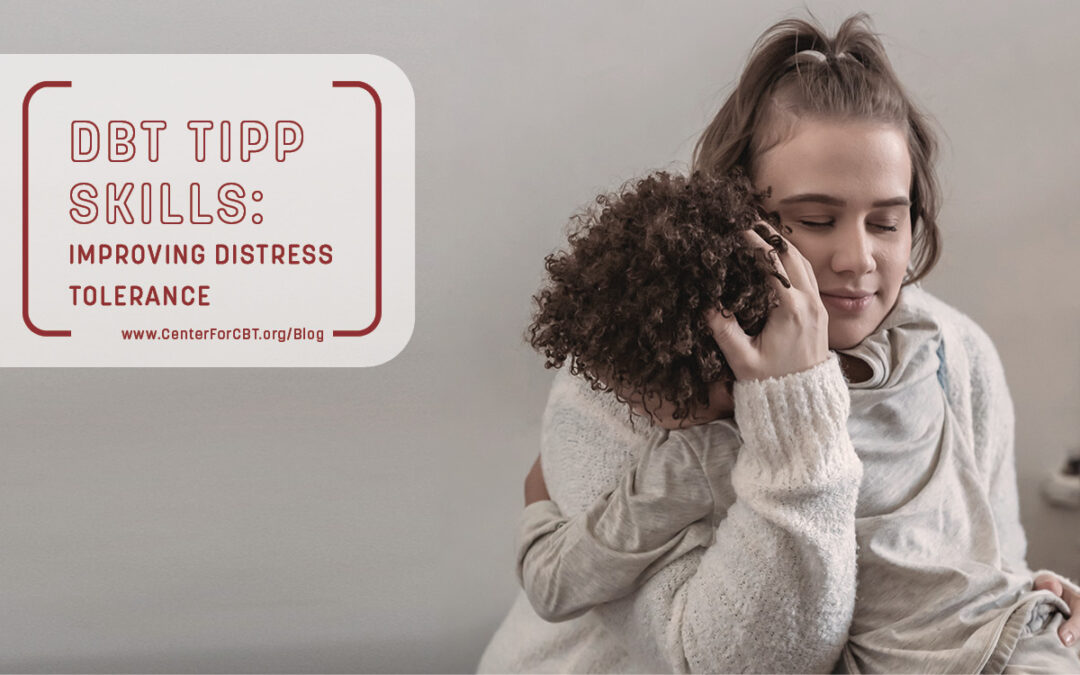We have all experienced emotional distress at times. From childhood through adulthood, we may face any number of challenging situations. In our everyday lives we experience a wide range of interactions, thoughts, and feelings that we may perceive as stressful. There are often things that may cause us distress, such as a frustrating conversation with a friend, troubles at work or school, or even running late for something important. Whether this is caused by an actual or perceived threat to wellbeing, many people have experienced difficulty managing these feelings of emotional distress.
An emotional incident can be exacerbated if someone has low distress tolerance. In other words, they may be lacking the proper tools to help manage their stress and could inadvertently worsen the situation. Individuals with low distress tolerance can become easily overwhelmed in stressful situations. They may find it challenging to diffuse the situation or keep themselves calm in the heat of the moment. They may even engage in coping mechanisms that are unhealthy or destructive, leaving them feeling even worse as time goes on. Our ability to tolerate stress ultimately dictates how we handle a given situation. By learning distress tolerance skills, you can work on improving your ability to handle everyday stressors and challenging situations through a calm, rational, and healthy approach.
TIPP skills can help you stay calm – schedule a free 15 minutes session now.
Dialectical Behavior Therapy (DBT) can teach us a number of skills to help us manage strong emotions. In addition to finding your Wise Mind, using TIPP skills can help you during those moments when you feel especially overwhelmed. TIPP stands for Temperature, Intense Exercise, Paced Breathing, and Progressive Muscle Relaxation. This DBT skill is used to regulate your emotional state during times of crisis or high emotional arousal. Practicing these regularly can improve your distress tolerance over time:
The DBT TIPP Skills:
Temperature. When feeling overwhelmed or in crisis, you may experience an increased heart rate. You will want to try and decrease your heart rate, which can be done by decreasing your temperature. Try to cool down by splashing cold water on your face, taking a cool shower, holding an ice cube, or by taking a walk on a cool day. Learn more here.
Intense Exercise. Intense emotions can lead to a lot of pent-up energy. This can be dispelled and put to good use by engaging in rigorous physical activity. You might consider going for a quick jog around the block, doing jumping jacks in place, or jumping rope. Practice this in moderation, and limit yourself to about 10-15 minutes to avoid over-exhausting yourself. Learn more here.
Pace Breathing. The rate of your breathing may also increase in moments of distress. This is also connected to your heart rate, and an increase in both can contribute to the feeling of being overwhelmed. Try to control your breathing with these steps:
- Breathe in deeply through your nose for 4 seconds
- Hold your breath for 5 seconds
- Release your breath through your mouth for 5 seconds
Repeat this process for about two minutes until your breathing feels more under control. Learn more here.
Progressive Muscle Relaxation. Stress can leave us with the sensation of physical tension, which can be released through controlled tensing and relaxation of the muscles. Start by sitting comfortably with your feet flat on the ground. Starting at the toes, become aware of your muscles and body. Tighten your toes and feet for five seconds, then release to loosen up the area. Repeat this process by working your way up through your body, slowly tensing and releasing until your whole body has relaxed. Learn more here.
Using DBT TIPP Skills
The best time to start practicing TIPP skills is when you are not experiencing a stressful situation. You can help your mind and body become more familiar with these skills by regularly engaging with them. Other skills to add to your toolbox include improving the moment and mindfulness to help work through challenging situations. This way, when you are faced with a moment of distress, you will be able to more easily call upon these skills to give yourself the help you need. Having a variety of skills at your disposal can help you and your loved ones improve emotional regulation and strengthen your relationships.



